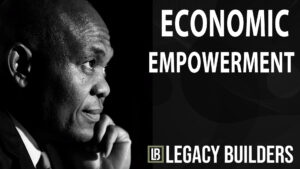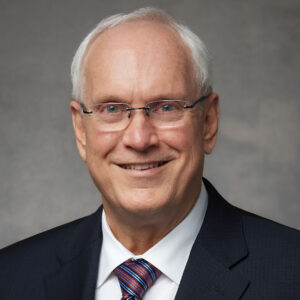Workplace Accountability in Four Steps

Have you encountered a co-worker, boss or employee, who slacks off, unloads their work onto others, or takes credit for work and ideas that are not their own? Accountability in the workplace can often seem a bit too scarce, especially when the competitive drive kicks in.
Or perhaps, someone that works hard, but never seems to get the important things done correctly, on time or within the budget? They could simply be unorganized or overwhelmed. If done correctly, implementing a process to improve accountability will also improve efficiency, reduce anxiety and promote teamwork, benefiting the entire team, department and company.
Using SMART goals:
Using SMART goals is well, very smart, and a good place to start. SMART stands for Specific, Measurable, Attainable, Relevant and Time-based. If all management does is replace current puff, shallow or vague goals with SMART goals, then progress can be made and improvement quickly achieved. However, this alone is not enough, more must be done to insure continued progress.
Accountability Isn’t Popular
Accountability hasn’t been considered the “next big idea” because it’s not “flashy.” There are no “bragging rights” about implementing an accountability process. After all, accountability means people would need to change, rather than a system or process that needs to change. And who wants to be accountable if it means having to personally change?
What Happens When There is No Accountability
On the other hand, we’ve seen what happens when there’s no accountability for leading people or processes: The dot-com bust, Enron, Katrina, FEMA…Scandals everywhere: Politics, religion, sports…Bernie Madoff, bailouts and industries collapsing…Product recalls, contaminated foods, greed, waste and excess. Hopefully, these extreme consequences are not applicable to you or your company in any way. But if there is a lack of accountability, at best one will always struggle to find success; and at worse, bad things will happen, both customers and jobs will be lost.
Four Simple Steps for Workplace Accountability:
- Use job descriptions embedded with SMART goals as the basis for hiring or promoting people into a position.
- Share the job description with incumbents so they know their accountabilities and let them know this will be used for training, coaching, and performance feedback.
- Have objective ways to measure and monitor performance and communicate those methods to the people performing the jobs. Follow through by providing feedback about performance.
- Provide training and coaching opportunities to enhance performance.
Conclusion
Though simple, these steps are not easy. Change is never easy nor is holding employees accountable for their responsibilities and success. Merely doing a job, does not ensure it’s done correctly or successfully. Clearly defining what success is and helping employees achieve that success with a process that trains, explains, tracks and reminds, will help management identify appropriate SMART goals and implement a process in which accountability can be tracked and rewarded. Constant vigilance and tweaking will be required for long-term success. But the rewards are happier employees and a more profitable company.
We hope you found this article about workplace accountability in four steps helpful. If you have questions or need expert tax or family office advice that’s refreshingly objective (we never sell investments), please contact us or visit our Family office page or home page www.Groco.com. Unfortunately, we no longer give advice to other tax professionals gratis. Considerately yours, GROCO, GROCO Tax, GROCO Technology, GROCO Advisory Services, GROCO Consulting Services, GROCO Relationship Services, GROCO Consulting/Advisory Services, GROCO Family Office Wealth, and GROCO Family Office Services
This article includes excerpts, reproduced with permission, from an article by Marty Stanley, president of Dynamic Dialog, Inc. source, Partner Insights.
To receive our free newsletter, contact us here.
Subscribe our YouTube Channel for more updates.
Alan Olsen, is the Host of the American Dreams Show and the Managing Partner of GROCO.com. GROCO is a premier family office and tax advisory firm located in the San Francisco Bay area serving clients all over the world.

Alan L. Olsen, CPA, Wikipedia Bio
Dr. Stel Nikolakakis on The Power of Vision Therapy
Unlocking Potential: The Power of Vision Therapy Vision therapy is emerging as a transformative tool for individuals with learning disabilities, ADHD, concussions, and even high-performance athletes. Dr. Stel Nikolakakis, an optometrist and a pioneer in neuro-visual training, discovered the profound impact of vision therapy through a deeply personal experience—his son’s diagnosis with cerebral palsy. His…
Entrepreneurship and Economic Empowerment: The Path to Sustainable Growth
Entrepreneurship has long been recognized as a powerful driver of economic growth and social transformation. Across the globe, individuals with innovative ideas and the determination to bring them to life have created businesses that fuel economies, generate employment, and uplift communities. Nowhere is this potential more evident than in Africa, where a young, vibrant population…
Bob Gay on The Pillars of Self-Reliance
The Pillars of Self-Reliance At the recent Legacy Builders Conference, Robert Gay captivated the audience with a profound message: true impact comes not from handouts, but from empowering individuals to achieve self-reliance. A distinguished investor, philanthropist, and humanitarian, Gay has spent decades applying the principles of entrepreneurship and accountability to lift millions out of poverty.…
The Future of Sustainable Philanthropy
At the Legacy Builders 2025 Conference, three leading voices in philanthropy-Mark Lutz, Pamela Hawley, and Zoe Ryan-came together to share their insights on how to create lasting, community-driven impact in global development. While their experiences and approaches varied, a common theme emerged: true sustainability in philanthropy begins with listening to, investing in, and empowering local leadership. Mark Lutz: Building…



